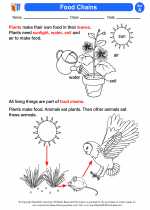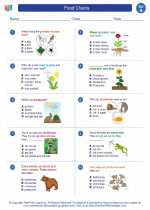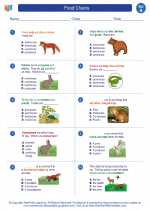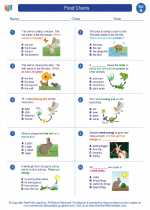Nutrients
Nutrients are substances that are essential for the growth, development, and maintenance of the human body. They provide energy, support bodily functions, and help the body to repair and build tissues. There are six primary categories of nutrients: carbohydrates, proteins, fats, vitamins, minerals, and water.
Carbohydrates
Carbohydrates are the body's main source of energy. They are found in foods such as bread, pasta, rice, and fruits. When consumed, carbohydrates are converted into glucose, which is used by the body as fuel for physical and mental activities.
Proteins
Proteins are essential for the growth and repair of tissues, as well as for the production of enzymes and hormones. Foods rich in proteins include meat, fish, eggs, dairy products, and legumes.
Fats
Fats are a concentrated source of energy and play a key role in the absorption of fat-soluble vitamins. They also provide essential fatty acids that the body cannot produce on its own. Sources of healthy fats include avocados, nuts, seeds, and olive oil.
Vitamins
Vitamins are organic compounds that are crucial for various bodily functions, such as immune system support, bone health, and energy production. There are 13 essential vitamins, each with its own unique role in the body. They are found in a wide variety of foods, including fruits, vegetables, dairy products, and fortified cereals.
Minerals
Minerals are inorganic nutrients that are necessary for the proper functioning of the body. They are involved in processes such as bone formation, fluid balance, and nerve function. Common minerals include calcium, iron, magnesium, and potassium, which can be obtained from foods like dairy products, leafy greens, nuts, and whole grains.
Water
Water is essential for life and makes up a significant portion of the human body. It is involved in various bodily functions, including temperature regulation, nutrient transport, and waste removal. It is important to drink an adequate amount of water each day to maintain proper hydration.
Study Guide
.◂Science Worksheets and Study Guides First Grade. Food Chains

 Activity Lesson
Activity Lesson
 Worksheet/Answer key
Worksheet/Answer key
 Worksheet/Answer key
Worksheet/Answer key
 Worksheet/Answer key
Worksheet/Answer key
 Worksheet/Answer key
Worksheet/Answer key
 Vocabulary/Answer key
Vocabulary/Answer key
 Vocabulary/Answer key
Vocabulary/Answer key
